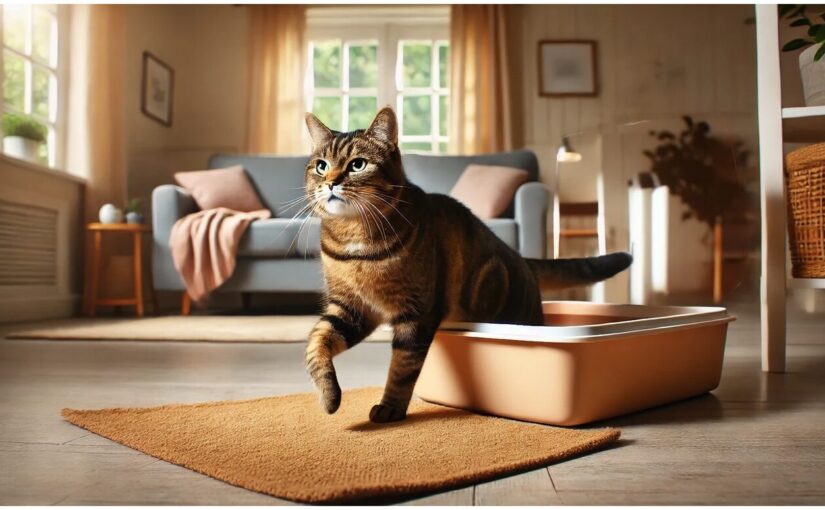Cats are known for their fastidious nature, often seen meticulously covering their waste. However, some cats deviate from this behavior and leave their poop uncovered. This can be puzzling and frustrating for cat owners. Understanding the reasons behind this behavior can help you address the issue effectively. Here are several reasons why your cat might not be burying its poop:
1. Territorial Marking
Cats are territorial animals, and one way they mark their territory is through scent. By leaving their poop uncovered, they are sending a message to other animals that this is their domain. This behavior is more common in multi-cat households or areas where other animals frequent. Uncovered poop can be a way for a cat to assert dominance and mark their presence.
2. Health Issues
Health problems can also cause a change in a cat’s bathroom habits. Conditions such as arthritis can make it painful for a cat to dig and cover its poop. Similarly, gastrointestinal issues might cause discomfort during defecation, leading the cat to hurry away without covering its waste. If your cat suddenly stops burying its poop, a visit to the vet can help rule out any underlying health problems.
3. Litter Box Problems
The type of litter, the cleanliness of the box, and its location can all impact a cat’s willingness to use and cover their waste in the litter box. Some cats are very particular about their litter. If the texture or smell of the litter is unpleasant, they might avoid burying their poop. Additionally, a dirty litter box or one that is placed in a high-traffic or noisy area might discourage your cat from spending the necessary time to cover their waste.
4. Learned Behavior
Kittens typically learn to bury their poop by observing their mother. If a kitten is separated from its mother too early or never sees this behavior modeled, it might not develop the habit of burying its poop. In such cases, you can try to encourage this behavior by gently covering the poop for them and using positive reinforcement.
5. Behavioral Issues
Stress and anxiety can also affect a cat’s bathroom habits. Changes in the household, such as the introduction of a new pet, moving to a new home, or changes in routine, can all lead to stress in cats. Stress might cause them to act out in various ways, including not burying their poop. Providing a calm and stable environment, along with plenty of mental and physical stimulation, can help alleviate stress-related behaviors.
6. Age
As cats age, their habits can change. Older cats might not bury their poop due to cognitive decline or physical limitations. Arthritis or other age-related conditions can make it difficult for them to maneuver and dig in the litter box. Providing a more accessible litter box with lower sides and a comfortable type of litter can help older cats maintain their bathroom habits.
Tips to Encourage Your Cat to Bury Its Poop
If your cat is not burying its poop, there are several steps you can take to encourage this behavior:
- Choose the Right Litter: Experiment with different types of litter to find one that your cat prefers. Unscented, clumping litters are often a good choice.
- Keep the Litter Box Clean: Scoop the litter box at least once a day and change the litter regularly. Cats are more likely to cover their waste in a clean box.
- Provide Multiple Litter Boxes: In multi-cat households, ensure there are enough litter boxes for all the cats. A good rule of thumb is one litter box per cat plus one extra.
- Create a Stress-Free Environment: Minimize changes in the household and provide plenty of enrichment activities to reduce stress.
- Regular Vet Checkups: Ensure your cat’s health by scheduling regular vet visits to catch any potential health issues early.
Understanding your cat’s behavior is the first step in addressing any issues. By considering the various reasons why your cat might not be burying its poop and taking appropriate action, you can help ensure your feline friend remains happy and healthy.
Resources
For more insights into cat litter box behavior, check out our post How Many Litter Boxes Do Your Cats Really Need to Be Happy
And the Humane Society of the United States has a comprehensive guide to litter boxes, litter and common potty problems, How to help your cat(s) use the litter box has even more information on this topic.






